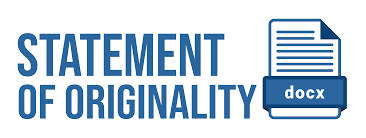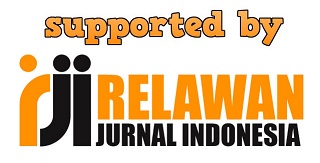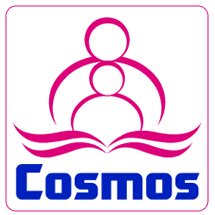Expediencies of Duolingo in English Language Learning: A Systematic Literature Review
DOI:
https://doi.org/10.61672/eji.v9i2.2997Keywords:
Duolingo, EFL Teaching-Learning, AdvantagesAbstract
In EFL classroom, employing technology in teaching-learning session is inevitable since technology becomes essential. One of the well-known online language learning applications is Duolingo. Thus, this study aimed to discover how Duolingo works as students’ learning medium in EFL teaching-learning. The writers attempted to synthesize 5 articles that were linked to Google Scholar with the publish years from 2020-2025 to show the advantages of Duolingo h in EFL teaching-learning. The findings showed that Duolingo allowed the students to have independent learning, improved their vocabulary, English syntax, and spoken scenario. Duolingo was also proven triggering students’ metacognitive awareness.
References
Al-Hafdi, F. S., & Alhalafawy, W. S. (2024). Ten years of gamification-based learning: A bibliometric analysis and systematic review. iJIM: International Journal of Interactive Mobile Technologies, 18(7), 188–212. https://doi.org/10.3991/ijim.v18i07.45335
Aulia, H. R., Wahjuningsih, E., & Andayani, R. (2020). The effect of Duolingo application on students’ English vocabulary mastery. ELTR Journal, 4(2), 131–139. https://doi.org/10.37147/eltr.v4i2.71
Ajisoko, P. (2020). The use of Duolingo apps to improve English vocabulary learning. iJET: International Journal of Emerging Technologies in Learning, 15(07), 149–155. https://doi.org/10.3991/ijet.v15i07.13229
Bacher-Hicks, A., Goodman, J., & Mulhern, C. (2021). Inequality in household adaptation to schooling shocks: Covid-induced online learning engagement in real time. Journal of Public Economics, 193, 104345. https://doi.org/10.1016/j.jpubeco.2020.104345
Bahari, A. (2022). Teacher identity in technology-assisted language learning: Challenges and affordances. E-Learning and Digital Media, 19(4), 28–37. https://doi.org/10.1177/20427530221092855
Budiono, A. D., Senowarsito, S., & Susanto, D. A. (2025). Developing metacognitive awareness through Duolingo application in enhancing students' self-reliance in learning speaking. EduLite: Journal of English Education, Literature, and Culture, 10(1), 1–15. http://dx.doi.org/10.30659/e.10.1.1-15
Carrera-Rivera, A., Ochoa, W., Larrinaga, F., & Lasa, G. (2022). How-to conduct a systematic literature review: A quick guide for computer science research. MethodX, 9, 1–12. https://doi.org/10.1016/j.mex.2022.101895
Cheng, V. W., Davenport, T., Johnson, D., Vella, K., & Hickie, I. (2019). Gamification in apps and technologies for improving mental health and well-being: Systematic review. JMIR mental health, 6(6), e13717. https://doi.org/10.2196/13717
Dehganzadeh, H. and Dehganzadeh, H. (2020). Investigating effects of digital gamification-based language learning: A systematic review. Journal of English Language Teaching and Learning, 12(25), 53–93. https://doi.org/10.22034/elt.2020.10676
Flores-Delgado, L. D., Olave-Moreno, I., Villarreal-Ballesteros, A. N., & Cancino-Ríos, C. P. (2025). Using Duolingo in the EFL classroom: A study on effectiveness and student perceptions. CIEX JOURN@L, (20), 47–58. Retrieved May 30, 2025 from https://journal.ciex.edu.mx/index.php/cJ/article/view/197
Haerazi, H. (2024). ICT integration into English language teaching-learning: Insights from some private higher education intitutions. Englisia: Journal of Language, Education, and Humanities, 11(2), 48–66. http://dx.doi.org/10.22373/ej.v11i2.19913
Humairoh, S., & Martriwati. (2025). EFL students’ perception in using Duolingo for developing speaking ability. PROJECT: Professional Journal of English Education, 8(3). 628–635. Retrieved May 30, 2025 from http://journal.ikipsiliwangi.ac.id/index.php/project/article/view/26857
Kazu, I. B., & Kuvvetli, M. (2025). Digital language learning with Duolingo: assessing its impact on listening, speaking, reading, and writing skills. Journal of Computer in Education. https://doi.org/10.1007/s40692-025-00355-0
Marinda, M. A. (2025). Applying Duolingo application to improve young learners’ English vocabulary: Students’ perception in Indonesia. Journal of English Teaching and Learning, 4(2), 54–60. https://doi.org/10.62734/jetling.v4i2.586
Muttaqin, M., Zuhdi, H., & Ridwan. (2025). The use of gamification-based Duolingo application in increasing student motivation is reviewed from the theory of self-determination. AL-WIJDAN: Journal of Islamic Education Studies, 10(1), 81–95. https://doi.org/10.58788/alwijdn.v10i1.5844
Norlita, D., Nageta, P. W., Faradhila, S. A., Aryanti, M. P., Fakhriyah, F., & Ismayam. A, E. A. (2023). Systematic literature review (SLR): Pendidikan karakter di sekolah dasar. JISPENDIORA: Jurnal Ilmu Sosial, Pendidikan, dan Humaniora, 2(1), 209–219. https://doi.org/10.56910/jispendiora.v2i1.743
Petersen, K., Vakkalanka, S., & Kuzniarz, L. (2015). Guidelines for conducting systematic mapping studies in software engineering: An update. Information and Software Technology, 64, 1–18. https://doi.org/10.1016/j.infsof.2015.03.007
Poudel, A. P. (2022). Information and communication technology in English language teaching: Some opportunities and challenges. OJED: Open Journal in Education, 14(4). 103–116. DOI: 10.32674/jcihe.v14i4.3874|
Renova, H. I., & Kurniawan, F. (2025). English language education students’ use of Duolingo app in English learning. JELE: Journal of English Language and Education, 10(1). 589–595. https://doi.org/10.31004/jele.v10i1.722
Wati, I., Pratiwi, W., & Alouzi. (2025). The effectiveness of Duolingo as a medium vocabulary learning for vocational school. JED: Journal of English Development, 5(2). 268–280. Retrieved May 30, 2025 from https://journal.iaimnumetrolampung.ac.id/index.php/jed/article/view/5717
Downloads
Published
Issue
Section
License
Copyright (c) 2025 Vannia Liebnis, Indra Perdana, Elanneri Karani

This work is licensed under a Creative Commons Attribution 4.0 International License.




















